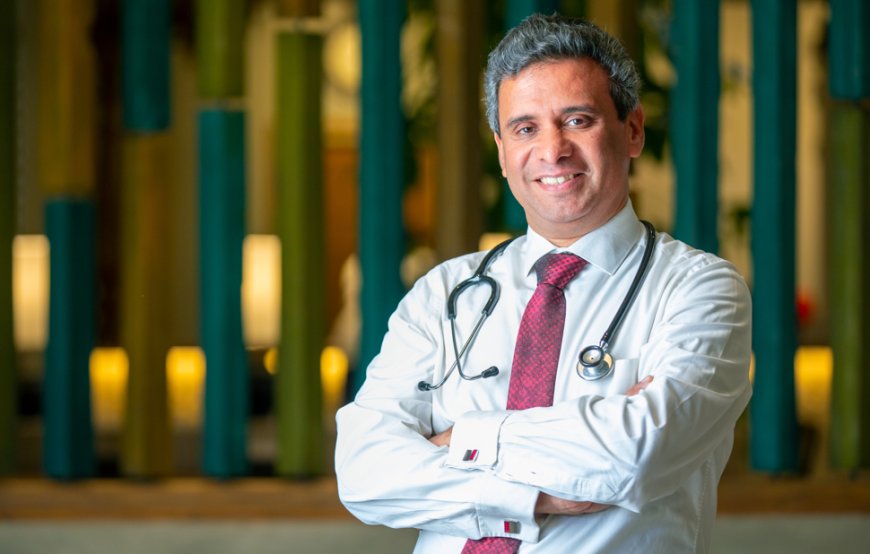Understanding the Risks of Self-Medication and Steroid Use on Heart Health
Learn about the potential causes of heart attacks in young people, including the impact of self-medication, prolonged steroid use, and stress. Discover how lifestyle changes and stress management techniques can help reduce the risk of heart disease.

When looking at heart diseases, coronary artery disease was once the primary contributor. However, today, myocardial infarctions are occurring at an early age, often accompanied by comorbidities like early-onset diabetes and hypertension. Additionally, psychological and financial burdens can play a significant role. Drug abuse, self-medication, and prolonged use of nutraceuticals without medical supervision are also contributing factors. Furthermore, underlying coronary artery disease may go undiagnosed until a myocardial infarction occurs.
Prolonged use of nutraceuticals can harm the heart, but it's not just nutraceuticals that are a concern. Self-medication, including taking steroids for extended periods without medical supervision, can also lead to myocardial infarction. Stress plays a significant role too, affecting not just mental health but also having a tremendous impact on the heart. The heart is an emotional center, and stress can have a profound effect on it.
While COVID may not be the main cause of heart attack deaths, it could be one of the factors that aggravates existing conditions. The pandemic has shaken up our immune system, and post-COVID, certain diseases may be more pronounced. Comorbidities like unmanaged diabetes or heart issues can worsen during COVID, leading to increased mortality. Blaming COVID directly might be an oversimplification, but it's possible that it contributes to aggravating underlying conditions.
Managing stress is crucial in today's world, where lifestyle-related diseases are prevalent. To reduce the risk of heart attacks, it's essential to shift from a stress response to a relaxation response. Practicing relaxation techniques like deep breathing, progressive muscular relaxation, or guided visualization multiple times a day can help. By incorporating these techniques into daily life, individuals can reverse stress responses and mitigate the risk of stress-induced heart attacks. A single session of yoga or relaxation isn't enough; consistent practice is key to bringing about significant change.
Diet plays a crucial role in heart health, and it's closely linked to lifestyle-related diseases. Processed foods, high in sugar and artificial flavors, can cause atherosclerosis and coronary artery disease. Sugar molecules can cause minor injuries to blood vessels, leading to cholesterol buildup and heart disease. Addressing the root cause, such as dietary modifications, is essential. Foods like rice, wheat, and millets are pro-inflammatory, while anti-inflammatory foods can help reduce chronic inflammation. Withdrawal of grains and sugar, and adding herbs like arjuna and ashwagandha, can make a significant difference in heart health. Processed foods and aerated drinks with artificial flavors and chemicals are detrimental to heart health. A natural diet with fresh fruits and minimal processed foods is recommended.
Once health conditions are reversed, grains can be reintroduced, but they should not exceed 20% of the meal. The remaining 80% should consist of fruits, vegetables, pulses, and proteins. Our ancestors' diets changed over time, and grains became a staple, but their lifestyle and stress levels were different. Today, our stress levels are higher, and our diet needs to adapt. A balanced diet with minimal grains and emphasis on whole, nutrient-rich foods is recommended.
While screening is important, lifestyle changes are key to preventing heart disease. Screening can be done every 5-6 years, but it's crucial to adopt a healthy lifestyle, including dietary changes and stress management. The age for screening may need to be lowered to 30 due to the increasing prevalence of heart disease in younger populations. Dr. Dean Ornish's program has shown that lifestyle modifications, including diet, yoga, and stress management, can reverse coronary artery disease. A holistic approach, integrating modern medicine with natural methods, is recommended.
What's Your Reaction?
 Like
0
Like
0
 Dislike
0
Dislike
0
 Love
0
Love
0
 Funny
0
Funny
0
 Angry
0
Angry
0
 Sad
0
Sad
0
 Wow
0
Wow
0

















































































































































































